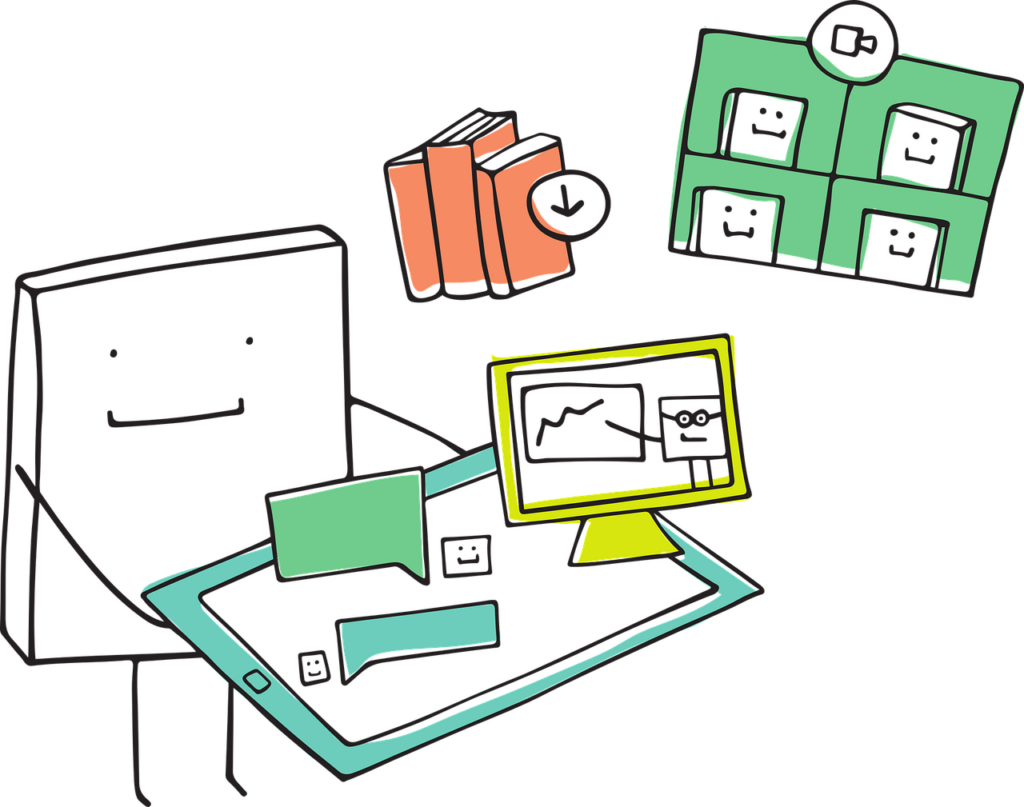Universal Design for Learning
Universal Design for Learning (UDL) is a framework that helps to make learning more inclusive by giving students different ways to take in and apply ideas. For example, in a classroom setting, UDL might mean offering both videos and text for a lesson so students can choose which one works best for them. In digital classrooms, it could mean providing more options like mentioned above or including captions on videos – the more options and routes for students to engage the better. I’ve personally found that the higher one goes in their education (i.e. through elementary to college), the less options from teachers they have – so I think it is the most important to give students links to resources so they can supplement their learning or do it in their own way entirely.

Ensuring Accessibility in Online Settings
Ensuring that everyone has an equal chance to learn, especially in online environments, should be a top priority for educators. With online learning, common accessibility issues include things like videos with no captions, documents that don’t work with screen readers, hard to read colours and text, and access to internet. To ensure learning is accessible, we can offer captions on videos, checking colours and fonts for visibility using tools like WAVE (web accessibility evaluation tools), and offer offline resources to those with no internet at home. Most importantly, as found by Lowenthal & Lomellini (2022), is education of learning accessibility to teachers – this will lead to improved online learning for all.
Ethical Challenges of EdTech
EdTech has made learning easier, but also brings some ethical challenges. One big issue is privacy, and lots of EdTech tools collect personal data from students and educators alike. That’s why it’s important that educators read into data sharing policies from online tools, because if data isn’t safe, sensitive information about students could be exposed. So, privacy and data security can go hand-in-hand here. As for equity, not everyone has access to the internet, so that is why it’s important to ensure we offer offline resources as well. And on the topic of AI tools, while useful for some instances (like brainstorming), when it is used for other purposes it can lead to concerns with academic integrity. As mentioned by Gulumbe et al. (2024), AI can generate content that blurs the lines between plagiarism and original ideas. Balancing benefits with ethical concerns is very important for educators.
Ethical Considerations in Digital Interactions
When we interact in digital spaces, we have a responsibility to be respectful and ethical. The anonymity sometimes offered by the internet can have drawbacks. Cyberbullying is an issue, and has been talked about since I was in middle school – it can really affect a student’s morale and willingness to learn. As a participant of online communities, everyone should always follow netiquette. A really good short podcast on this subject is linked below.
Applying UDL and Accessibility Principles
In one of my classes (I won’t name names but it was CSC225), the professor mainly read off of the slides and not much else – appearing like they were viewing them for the first time as well as the students. It did not fit with the UDL idea of using different strategies to learn, and some students, I know myself, struggled in the class because of it. There was no supplemental resources given, so I would say that I learned most about the subject matter on YouTube for that class. This would be even worse for students with disabilities, because the slides were hard to read, and the professor did not give much extra info in class. To improve, the professor could have offered more diverse materials, explained concepts twice from different perspectives, and made sure to post lecture recordings for those needing captions.
References
Gulumbe, B. H., Audu, S. M., & Hashim, A. M. (2024). Balancing AI and academic integrity: what are the positions of academic publishers and universities? AI & Society. https://doi.org/10.1007/s00146-024-01946-8
Lowenthal, P. R., & Lomellini, A. (2023). Accessible Online Learning: A Preliminary Investigation of Educational Technologists’ and Faculty Members’ Knowledge and Skills. TechTrends, 67(2), 384–392. https://doi.org/10.1007/s11528-022-00790-1
